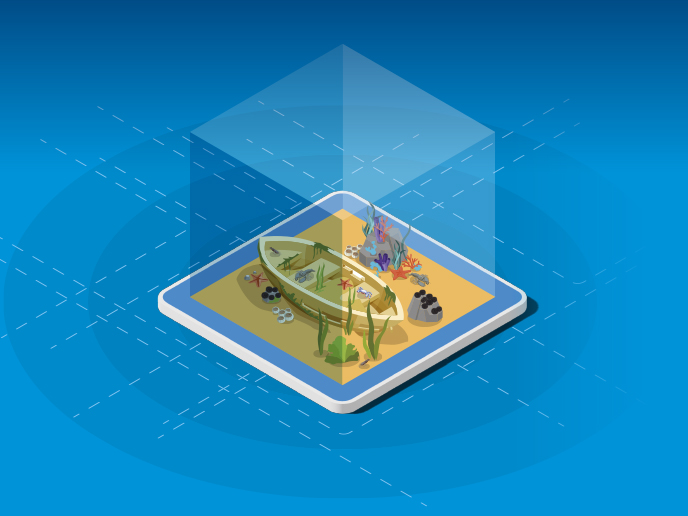II - Boosting marine conservation through nature based solutions
FutureMARES gives science-based guidance on how best to implement the restoration of marine habitats.
Myron Peck, FutureMARES scientific coordinator
Ocean and coastal waters harbour a large portion of the world’s biodiversity. These ecosystems provide a range of services which support food security, regulate the environment and carry significant cultural weight. To protect them, researchers and policymakers are increasingly turning to nature based solutions (NBSs), which are both inspired and supported by nature. In the EU-funded FutureMARES project, a consortium of world-leading, interdisciplinary experts is using direct measurements and beyond state-of-the-art modelling to further our understanding of the complex links between biodiversity, NBS and ecosystem services. “Ecosystem-based management, adaptive marine spatial planning and habitat restoration can help support and enhance the capacity of marine and transitional ecosystems to adapt and mitigate unwanted impacts of climate change,” explains Myron Peck, the scientific coordinator of FutureMARES at the Royal Netherlands Institute for Sea Research (NIOZ). Peck and his team are investigating ‘climate rescuer’ species that create habitats such as seagrass meadows, kelp forests and marine animal reefs, which can shelter species from the negative effects of ocean warming and acidification. These habitats are also providing key ecosystem services, such as reducing coastal erosion and functioning as carbon sinks, regulating the climate. The team is also explicitly considering the range of impacts from climate change on habitat suitability, exploring strategies to preserve the integrity of food webs and identifying climate refugia – areas where conditions are stable or changing slowly – to help marine conservation. The project is also studying sustainable, nature-inclusive harvesting (NIH) of seafood from fisheries and aquaculture. So far, project partners have created 39 unique ‘Storylines’ that showcase historical and future impacts of climate change on species and habitats important to NBSs and NIH. These also include examples of effective restoration, effective conservation and NIH. Among other outputs, FutureMARES has: gained new ecological knowledge to plan effective NBSs; created detailed future scenarios of NBSs under climate change; studied the climate sensitivity of species and communities; and developed climate risk assessment tools to see how global warming impacts the services biodiversity provides to human society. “FutureMARES gives science-based guidance on how best to implement the restoration of marine habitats and networks of marine protected areas, delivering significant benefits for climate change mitigation and supporting policies such as the goals of the EU’s Biodiversity Strategy as well as the proposal for a Nature Restoration Law,” says Peck.
Keywords
blue carbon, ocean-climate-biodiversity nexus, climate mitigation and adaptation, natural carbon sequestration, ecosystem services, marine biodiversity, ecosystem functioning, functional ecology, maritime spatial planning, ecosystem-based approach



